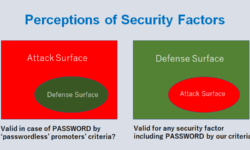
Image: Lucas Sandor
On the still insufficiently explored and analyzed field where dynamic cybersecurity issues continue to evolve in a geopolitical environment functioning in the tribal mode with state and non-state actors confronting each other, and strongly assisted through her abundant experience and activity within the RGroundup, Dr. Jayshree Pandya makes, through her new book “Geopolitics of Cybersecurity”, a huge advance to the understanding that national security in the 21st century is practically unachievable without a comprehensive global approach to collective cybersecurity.
The book’s first substantially informative part (sections 1.-5.) represents the advent of cyberspace, its evolution, transformational power over other areas of human activity, and the inevitability of its weaponization. But in fact, through this part the author is conceptualizing one new type of global risks – that of the expanding and deepening digital vulnerability. We love to enjoy the benefits if digitization, which has in multiple cases proved its superiority by providing preconditions for comprehensive analysis and edge optimization in numerous fields, including the advance of artificial intelligence. Digitization, however, comes with vulnerabilities that constitute the matter of cybersecurity. Dr. Pandya has clearly defined an anthropogenic risk with the potential to threaten human existence.
What is more, in the following sections, we get from the book the important observations that, unlike other well-known global risks, such as climate change, nuclear weapons, global pandemic, etc., for which already there are in place broad public perception, certain institutionalization on national and international level, numerous non-government organizational support, and even some generally accepted regulations, for the threats in the area of cybersecurity geopolitics we are not aware of anything comprehensive being prepared. This constitutes a wake-up call for clear understanding the existing threats, and an appeal to all to act without delay.
The last sections of the book reveal some of the author’s ideas for addressing the issues of geopolitical cybersecurity, including ones based on new technologies, such as blockchain.
The appearance of a book like for “Geopolitics of Cybersecurity” is not only timely, provided the dynamics of current international affairs and the speed with which contemporary technologies advance. The new book of Dr. Jayshree Pandya is also an essential contribution to the practical processes aimed at increasing global human security and creating a better collective future, and its original observations, analysis and conclusions should become known not only to representatives of academia and technology, but also to politicians and all involved in real politics decision-making.





 Preparing For The Emerging 2019–20 Wuhan Coronavirus (COVID-19) Pandemic
Preparing For The Emerging 2019–20 Wuhan Coronavirus (COVID-19) Pandemic